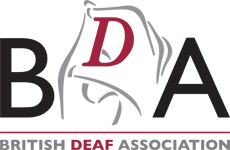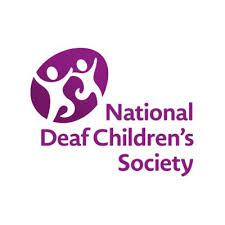Training as a Teacher of Deaf Children and Young People
This page gives a brief description of the work that Qualified Teachers of Deaf Children and Young People (QToDs) do, then describes the qualifications needed and how to obtain them.
Any degree of deafness may cause significant educational and social problems. Children who are born severely or profoundly deaf need skilled teaching to develop language and communication skills (including speech and sign language as appropriate). Many children and young people (CYP) whose deafness is less severe also need special support. Teaching deaf CYP is stimulating and rewarding, and is made more so by continuing developments:
- earlier and more accurate identification of deafness
- greater understanding of language development
- changing attitudes to the use of sign language
- provision of more advanced hearing aids and cochlear implants
- more informative and detailed assessment procedures.
Teaching deaf CYP offers a wide range of work opportunities in a number of different types of educational setting. It is challenging and stimulating work that invites initiative and gives teachers the chance to develop innovative patterns of classroom practice.
Where are deaf children educated?
Most deaf CYP attend mainstream schools. Some of these schools have resource provisions(or bases, units) led by QToDs. A smaller number of CYP are taught in special schools some of which offer residential provision. It is a requirement that pupils in these schools and resource bases are taught by appropriately specialist QToDa and that they obtain this qualification within three years of beginning their work with deaf CYP.
Peripatetic (or advisory) QToDs work for local education authority advisory and support services for deaf CYP. They support deaf CYP who are integrated into mainstream and special schools on an individual basis. An important part of their work is collaboration with mainstream classroom teachers who teach deaf CYP from day to day, and the management of support provided by teaching assistants (TAs) or CSWs (Communication Support Workers) who often accompany deaf pupils in lessons. Peripatetic teachers also visit parents of very young children at home to advise about the children’s development and to work with them as appropriate. They also support deaf children with other disabilities. The Government expects that these teachers also obtain the qualification.
QToDs may also work as part of a team in hospitals or health centres, concentrating on audiological and advisory services, particularly in the early years. Children who have cochlear implants are supported by a team of professionals including Teachers of Deaf Children and Young People, Speech and Language Therapists and Audiological Scientists. Some QToDs specialise in Further and/or Higher Education.
How to qualify
If you are thinking of becoming a QToD, it is useful to arrange a visit to a special school or resource base (or unit) for deaf pupils. Local Authorities’ (LA) heads of service for deaf CYP can give you information about these. In order to train as teachers of deaf pupils in schools or services, teachers must have qualified teacher status (QTS), or full recognition in Scotland, and have had some classroom experience before undertaking a Teacher of the Deaf mandatory qualification course. It is also possible, in England, to train with QTLS but this may limit the age groups of CYP with whom you can work once trained. All QToDs must have special training and qualifications.
In England, Northern Ireland and Wales there are several ways of achieving QTS. For more information visit the DfE website.
In Scotland you become a qualified teacher by taking a course which leads to full recognition with the General Teaching Council Scotland (GTCS). See here for further details: https://teachinscotland.scot/. Teachers from other parts of the UK wishing to move to Scotland need to approach GTCS about how to gain recognition: https://www.gtcs.org.uk/registration/qualified-outside-scotland.aspx
Deaf CYP have an entitlement to be taught by teachers who are effective and competent. The trainee Teachers of Deaf Children and Young People should usually be:
- a qualified teacher who is effective and competent
- an effective communicator
and should have:
- met a range of deaf adults and children before training
- a positive attitude towards deaf people
- a commitment to acquire basic sign language skills to Signature level 1 or equivalent.
The trainee Teachers of Deaf Children and Young People should also have:
- high expectations of and respect for all deaf learners as individuals
- a balanced and informed attitude towards the range of communication approaches used in the education of deaf learners
- a recognition of the individual needs, cultural and ethnic backgrounds of deaf learners and their families
- a positive attitude towards working in partnership with parents.
Becoming a QToD
After achieving QTS/full recognition, teachers usually need to gain some teaching experience before applying to undertake a Diploma/Certificate course in teaching deaf children. However, any experience gained with deaf CYP, such as voluntary work, will support the application. It is possible to be teaching deaf learners while gaining the necessary experience, provided such teachers are being supervised by a QToD.
In the November 2018 edition of the BATOD Magazine, we highlighted the decision to use the terms Teacher of the Deaf (ToD) and Qualified Teacher of the Deaf (QToD) throughout our literature. Feedback from the membership and profession has been hugely positive about this change and BATOD is hoping that you will be happy to follow suit.
BATOD’s position is that all ToDs who hold the Mandatory Qualification should be described as QTODs and those who are in the process of carrying out their mandatory training or are due to start, should be referred to as ToDs. We do not think that the terms ‘Trainee ToD’ or ‘ToD in training’ should be used as this does not reflect the fact that they already hold a qualification to teach.
Entry requirements for individual institutions will vary. Please contact the University directly for further information. Details about the individual courses are listed below.
Part-time courses are offered for people who want to train as Teachers of Deaf Children and Young People. Details of these are given below.
Deaf teachers
Deaf people who have the relevant qualifications are encouraged to apply to train as QToDs. Their contribution to the education of deaf CYP is particularly valuable. They should discuss their application and support needs for study with the University to which they are applying. The earlier this is done, the better.
Funding
Teachers in England and Wales should ask the LA or school in which they work for support in taking a full-time training course. Such teachers may have their tuition paid for by their employers. However this is becoming more and more unusual as the great majority of teachers in training as Teachers of Deaf Children and Young People are following part-time in-service training courses whilst working with deaf children. These courses are usually financed by schools and services.
Teachers in Scotland who wish to become QToDs may also apply for these one-year courses. For information about financial help, contact the Student Awards Agency for Scotland (Tel: 0131 476 8212).
Teachers in England can apply annually to the DfE National Scholarship Fund which can provide some financial support.
Furthermore, BATOD, on behalf of the Ovingdean Hall Foundation, is administering the Con Powell Scholarship to provide bursaries for teachers wishing to train but whose LA or school is not obliged to support financially.
Con Powell was BATOD’s first President.
There will be up to five scholarships awarded every year. Applicants will have to show evidence of Qualified Teacher Status, details of their chosen course provider including the name and number of the course, information about their current employment, a personal statement highlighting why they wish to undertake this training and that they understand the commitment required to complete the course, proof that their local authority or school is not obliged to fund their training and evidence that they have tried to obtain funding elsewhere. Finally they need to provide two referees. There will be an interview element to the process.
The Foundation will require that any successful candidate is a member of the professional organisation for Teachers of Deaf Children and Young People, BATOD.
The Con Powell scholarship application period for 2025 is open and will close on 5th April 2025.
Please note that the Con Powell Scholarship is currently only available to UK residents intending to study at one of the four course providers in England.
In addition, the Universities of Leeds and Manchester offer their own bursaries. See below in the individual sections for further information.
Some teachers who wish to undertake the qualification and then proceed to gain a master’s degree by further study, usually involving a dissertation, apply for the Government Master’s loan scheme. More information is available here: https://www.gov.uk/masters-loan
Several organisations offer independent financial assistance to students who are self-financing. Details may be found in ‘The Educational Grants Directory’ by Michael Eastwood and David Casson, published by the Directory of Social Change. This is available in most public libraries and will be useful for those who are trying to obtain financial support.
You can also find some information here:
Directory of social change – funding websites
The Snowdon Trust is a charity that assists physically and sensory disabled people to access vocational and academic courses in the UK by awarding grants. These can be for equipment and essential study needs. They only give awards where funding cannot be met through other channels. Further information can be found on this website: www.snowdontrust.org/.
Current course providers
Click here for a link to the list of current course providers.
Mandatory qualification
Here is the current specifications for the QToD mandatory qualification delivered by the following universities:
Universities (England) – Department for Education (2023)
University of Edinburgh Scottish Government (2007)



